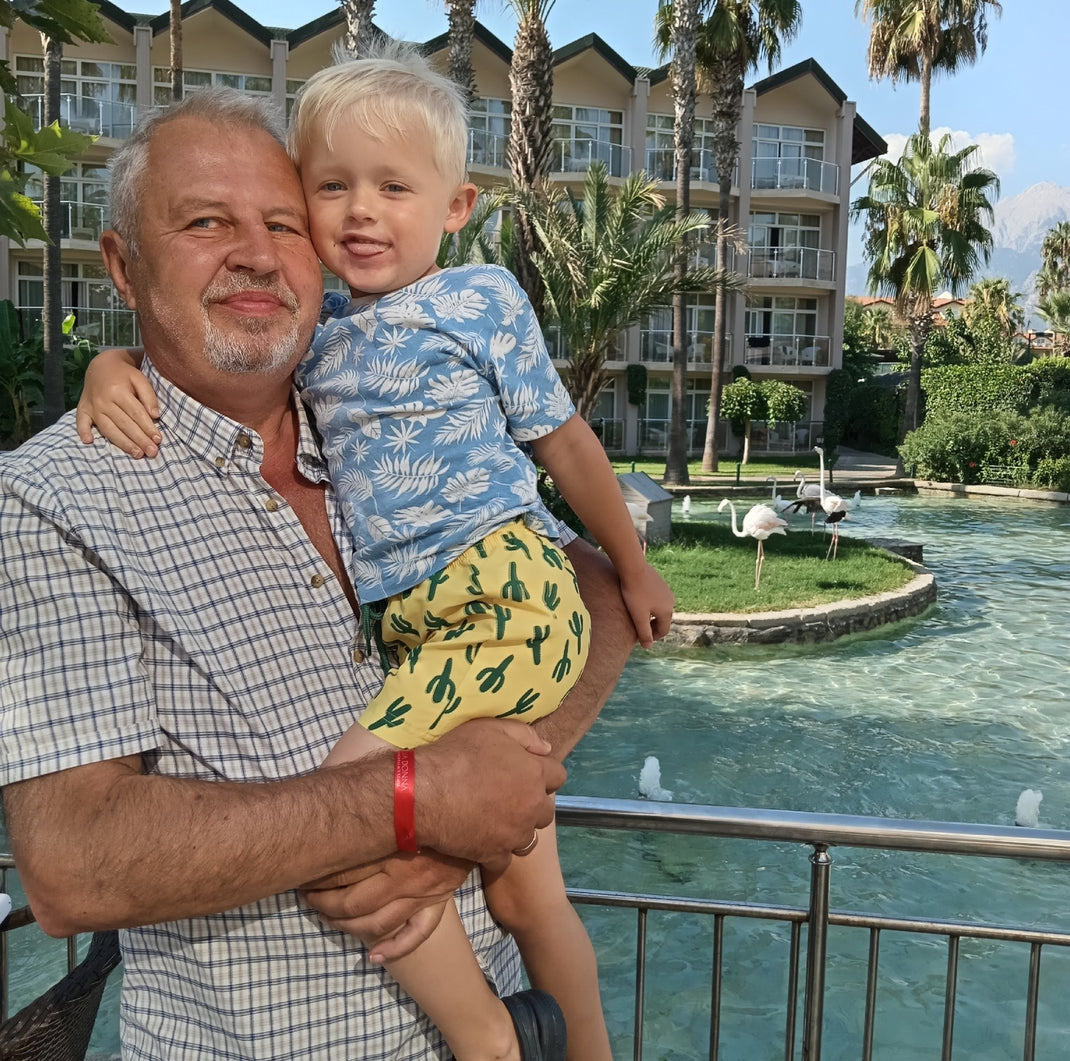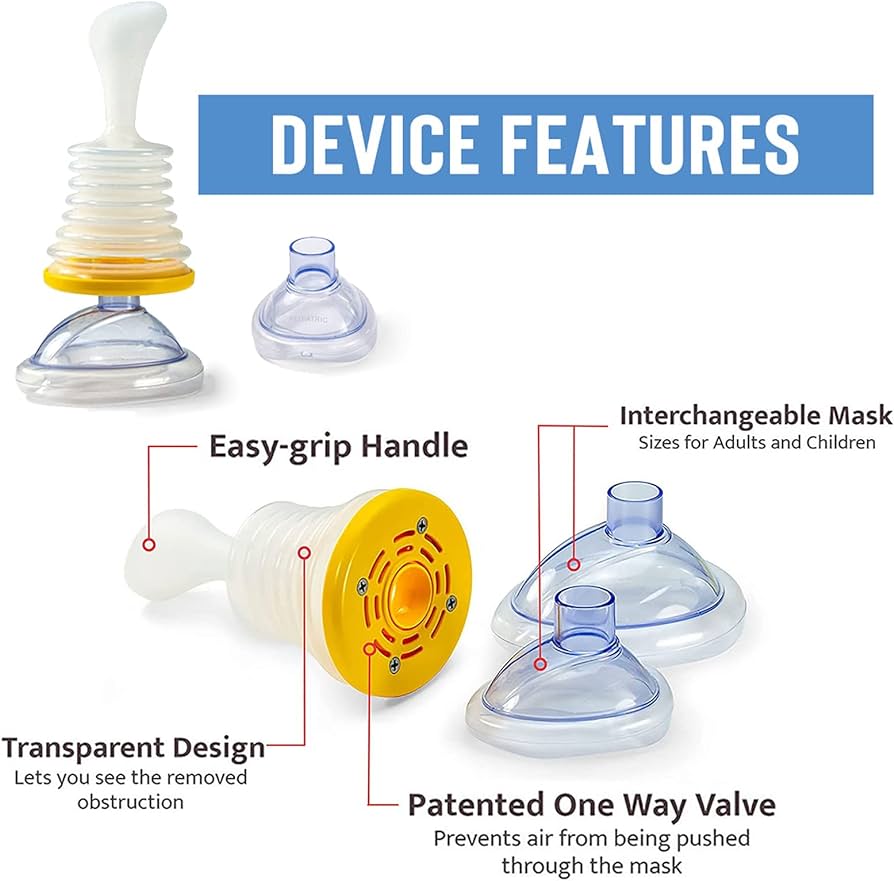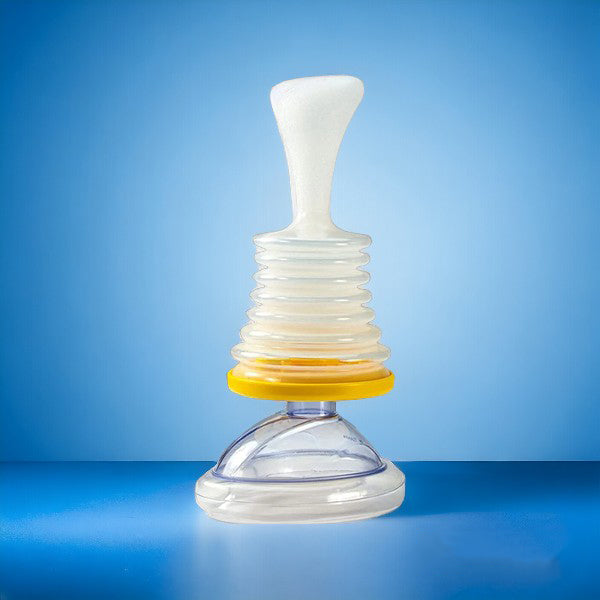Two Vietnam Veterans, Two Choking Emergencies: A Story of Survival and Loss

This is Jonathan, 73, seen with his grandchild. Beside him, though cropped out at the request of his family, is Michael, 74.
Both men served in Vietnam, where they forged an unbreakable bond as best friends and heroes, facing battles both abroad and at home.
Both experienced life-threatening incidents involving choking. Tragically, Michael did not survive, while Jonathan did.
This story explores the reasons behind their different fates—and how you can be better prepared for such an emergency.
Michael's Story
In early 2020, Michael, a retired Army Staff Sergeant, was enjoying grapes on his porch when a sudden misstep turned dangerous. He inhaled while a grape was in his throat, lodging it in his windpipe. He could only draw in a small amount of air—enough to breathe but not enough to speak.
Panicked but determined, Michael ran to his phone and dialed 911. He waited over 17 minutes for paramedics to arrive, an unusually long time even during the height of the pandemic.
Michael’s military service had taught him resilience and quick thinking, but in this instance, his efforts to dislodge the grape on his own were in vain.
By the time help arrived, Michael had collapsed on the porch, his airway completely obstructed. Despite the paramedics’ attempts to revive him, he was pronounced dead shortly after arriving at the hospital.
Choking is a deceptively swift and silent killer. Without immediate intervention, the lack of oxygen to the brain can lead to irreversible damage within four to six minutes. The critical nature of such emergencies highlights a harsh reality: emergency response times, even under normal circumstances, often cannot match the urgency of a choking incident.
During the height of the pandemic, response times were stretched even further due to overwhelming demand on emergency services, making tragedies like Michael’s more common. Those response times have not recovered.
For Michael’s family and friends, his death was a stark reminder of the fragility of life and the importance of being prepared. His best friend, Jonathan, who had also served in Vietnam, often reflects on what could have been done differently.
Jonathan's Story
Jonathan’s situation was eerily similar, though it occurred in 2021.
Jonathan, a retired Sergeant Major with the 173rd Airborne Brigade, had served alongside Michael in Vietnam, though the two had lost contact for more than seven years.
One evening, while dining alone, Jonathan suddenly choked on a pea that lodged in his airway. For a brief moment, he considered calling 911 but decided against it for two key reasons:
- He lived in a suburb where the response times are longer than 10 minutes.
- He had recently received a device called the Mavengity AntiChoke, designed specifically for such emergencies.

Acting quickly, Jonathan grabbed the device, which he kept near the dining table, placed it over his mouth, and with a single push, dislodged the pea from his airway in less than 17 seconds.
The Mavengity AntiChoke uses a one-way valve to quickly and effectively dislodge any foreign objects from the airway.

"I always thought I was unlucky for getting drafted into Vietnam. Over the years, it’s brought me nothing but hardship.
But the device that saved my life, the AntiChoke, was recommended by the VA. I’m so grateful—it not only saved my life but also spared me from a medical debt that could’ve wrecked me.
Thank you from the bottom of my heart."
- Jonathan K. Jones Jr.
Jonathan heard the devastating news from close friends: Michael had passed away. He was heartbroken and overcome with guilt when he realized that he had known about the AntiChoke device but never mentioned it to Michael. Jonathan had assumed Michael already had it, believing it was a standard medical device issued by the VA to all veterans.
The thought that Michael might not have even known about the device added to Jonathan's pain. It was a small, simple tool that could have saved his life—a tragic reminder of how assumptions can have dire consequences.

The AntiChoke is a compact, handheld device designed to create suction and dislodge airway blockages in seconds—a critical tool in emergencies
This simple yet life-saving device proved to be a critical tool sparing Jonathan's life.
Doctors from the VA later confirmed that without the AntiChoke device, Jonathan likely would not have survived the incident.
Here’s more about it below:





